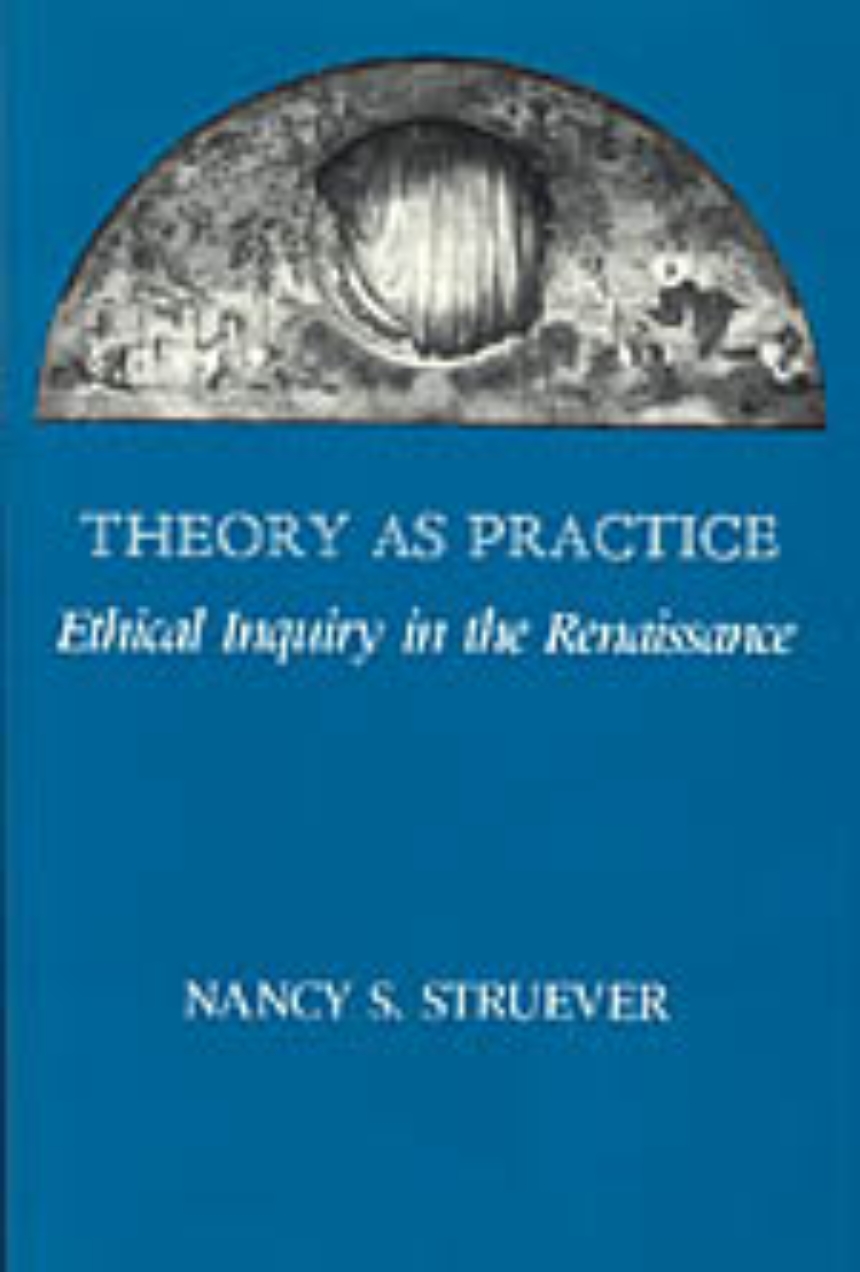Theory as Practice
Ethical Inquiry in the Renaissance
There is a tendency in modern scholarship to describe the Renaissance Humanists merely as readers—as interpreters happily absorbed within the bounds of their chosen classical texts. In Theory as Practice, Nancy Struever contests this accepted notion; by focusing on ethical inquiry, she presents the Humanists as engaged in subtle, innovative moral work.
Struever argues that the accomplishment of five major Renaissance figures—Petrarch, Nicolaus Cusanus, Lorenzo Valla, Machiavelli, and Montaigne—was to consider theory as practice and thus engage the ethics of inquiry. She notes three stages of investigation, the first represented by Petrarch, who "relocated" ethical inquiry from a theoretical realm to a familiar practice responsive to daily experience.
Struever argues that the accomplishment of five major Renaissance figures—Petrarch, Nicolaus Cusanus, Lorenzo Valla, Machiavelli, and Montaigne—was to consider theory as practice and thus engage the ethics of inquiry. She notes three stages of investigation, the first represented by Petrarch, who "relocated" ethical inquiry from a theoretical realm to a familiar practice responsive to daily experience.
Next, Struever describes how Cusanus and Valla assume Petrarch’s relocation, yet confect ethics into discursive disciplines. Finally, while both Machiavelli and Montaigne produced strong revisions of discipline, they considered the problems of addressing the non-inquirer as well. Struever urges modern readers to employ both rhetorical and philosophical analysis to reveal these Humanists’ aggressive tactics of presentation as well as their novel disciplinary reorientation. By doing so, she suggests, we discover how Renaissance ethical inquiry illuminates, and is illuminated by, the modern ethical theory of such philosophers as Peirce, Wittgenstein, Bernard Williams, and Quine.
255 pages | 1 halftone | 6 x 9 | © 1992
Culture Studies:
History: European History, History of Ideas
Philosophy: Ethics
Table of Contents
Introduction: The Uses of the Present
I. The Relocation of Inquiry
1. Petrarchan Ethics: Inventing a Practice
2. Afterword: Familiar Letters after Petrarch; A Practice Practiced
II. Internal Discipline
Introduction
3. Metaphoric Morals: Ethical Implications of Cusanus’s Use of Figure
4. Lorenzo Valla’s Grammar of Subject and Object: An Ethical Inquiry
5. Afterword: The Figuration of Aristotle
III. External Address
Introduction
6. Machiavelli: Narrative as Argument
7. Montaigne’s Web of Belief
8. Afterword 1: Purity as Danger; Gramsci’s Machiavelli, Croce’s Vico
9. Afterword 2: Purity as Danger; Belief after Montaigne
Index
I. The Relocation of Inquiry
1. Petrarchan Ethics: Inventing a Practice
2. Afterword: Familiar Letters after Petrarch; A Practice Practiced
II. Internal Discipline
Introduction
3. Metaphoric Morals: Ethical Implications of Cusanus’s Use of Figure
4. Lorenzo Valla’s Grammar of Subject and Object: An Ethical Inquiry
5. Afterword: The Figuration of Aristotle
III. External Address
Introduction
6. Machiavelli: Narrative as Argument
7. Montaigne’s Web of Belief
8. Afterword 1: Purity as Danger; Gramsci’s Machiavelli, Croce’s Vico
9. Afterword 2: Purity as Danger; Belief after Montaigne
Index
